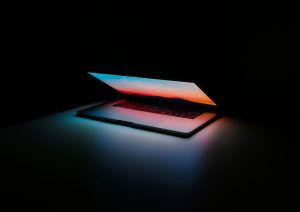
Unsplash Photo by Lukas Blaskevicius (Editorial, Technology) Unsplash
Device users are not a risk of eye damage due to blue light emitted from their devices, but they may be at risk of poorer sleep.
In 2019, Director Dr. David Ramsey of Ophthalmic Research at Lahey Massachusets Hospital and his study maintained that “many retail stores have ambient illumination twice as great…as [ones] iPhone, [and that] the sun yields illumination ten times greater!”
Light sources such as incandescence (light bulbs) and LEDs emit a broad spectrum of light, namely 400 to 700 nanometers (nm). Blue light is in the 400 to 450 nm range, carrying more energy than red light, raising concern.
Our retinas regularly absorb blue light emitted by the sun. For roughly 300,000 years, humans have sustained minor to no retinal damage: if it were damaging, we would have evolved optically blind.
Device intensities are much less than the sun and are regulated by manufacturers using light filters.
In 2019, CBC News conducted a Marketplace undercover investigation to debunk the concerns. In addition, Dr. SUNIR J. GARG, American Board Ophthalmologist and clinical researcher, addressed the myth.
“Why you don’t need blue light lenses: Hidden camera investigation (Marketplace)” A 2019 CBC Interview with Dr. SUNIR J. GARG, American Board Ophthalmologist, about why blue light glasses are unnecessary. Youtube
However, in the Harvard study, Dr. Ramsey adds that using devices late at night mimics sunlight, restraining melatonin production, a sleep-inducing hormone. This stimulates your circadian clock (your body’s 24-hour sleep clock), tending to delay your sleep cycles, disrupting your sleep, and increasing drowsiness the following morning.
By stopping use of electronic devices 30 minutes before bed, you can increase REM (deep-stage sleep), reduce morning drowsiness, and maintain a consistent circadian rhythm, which in itself has its own benefits.
In short, research before propagating a supposed “scientific claim” and reduce your screen time before bed.
~ Octavian Turner




